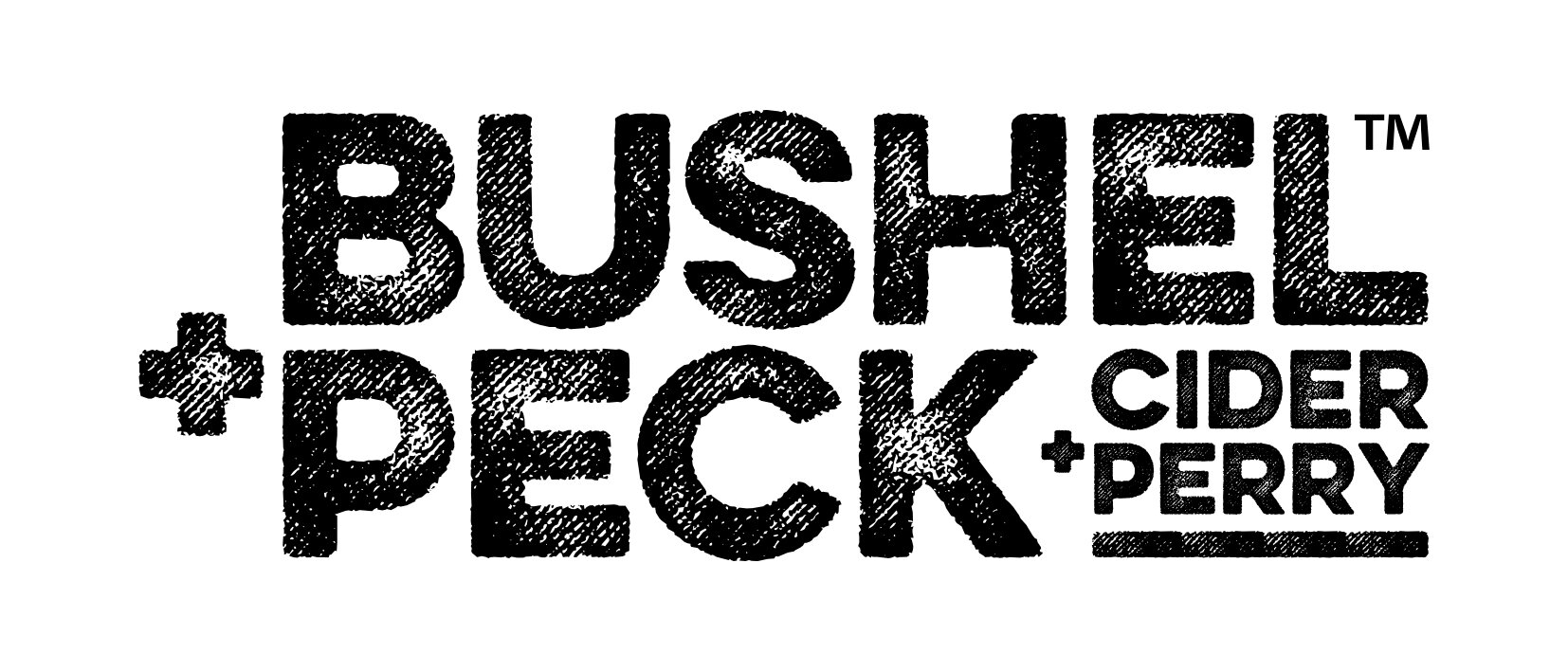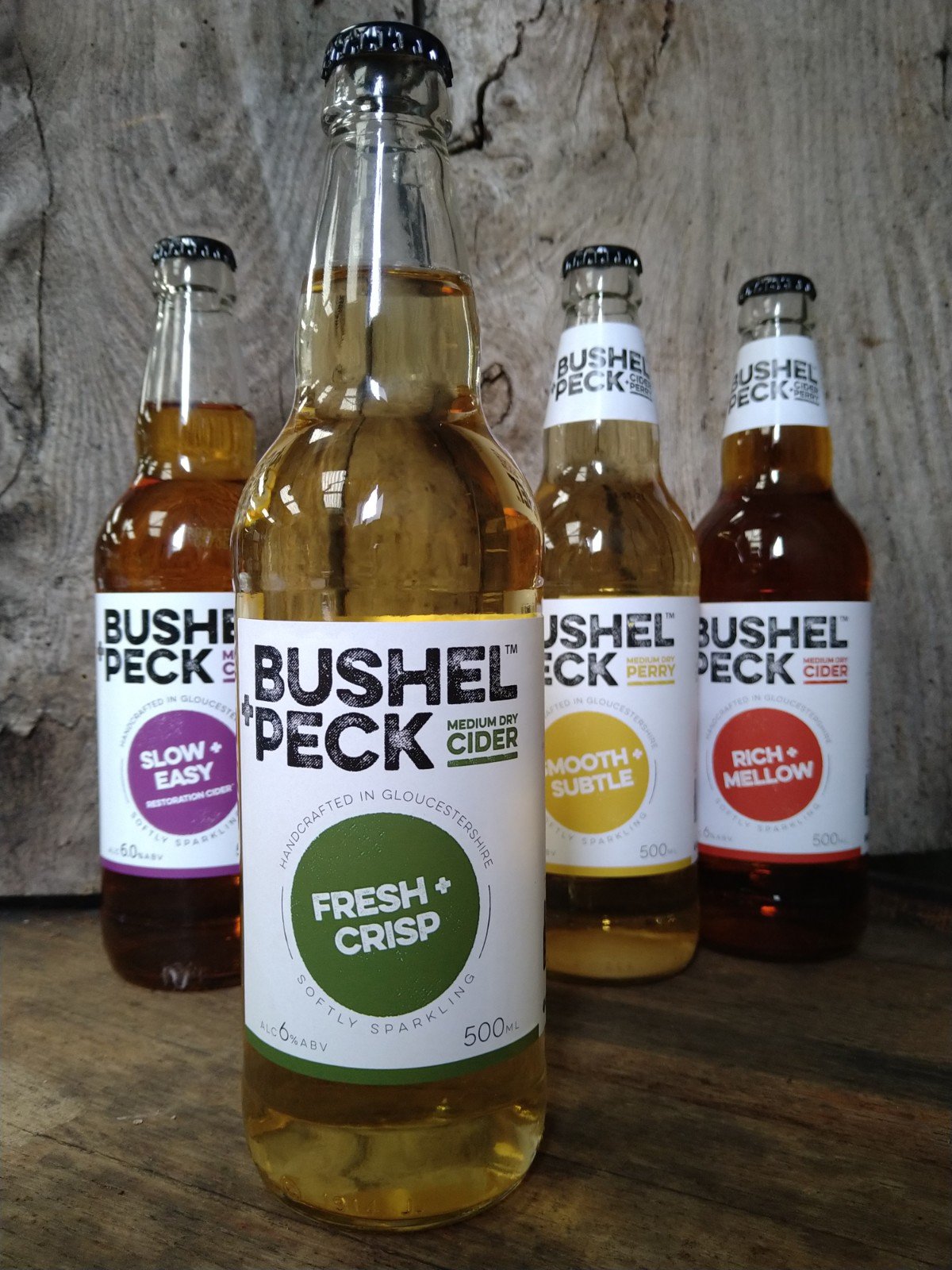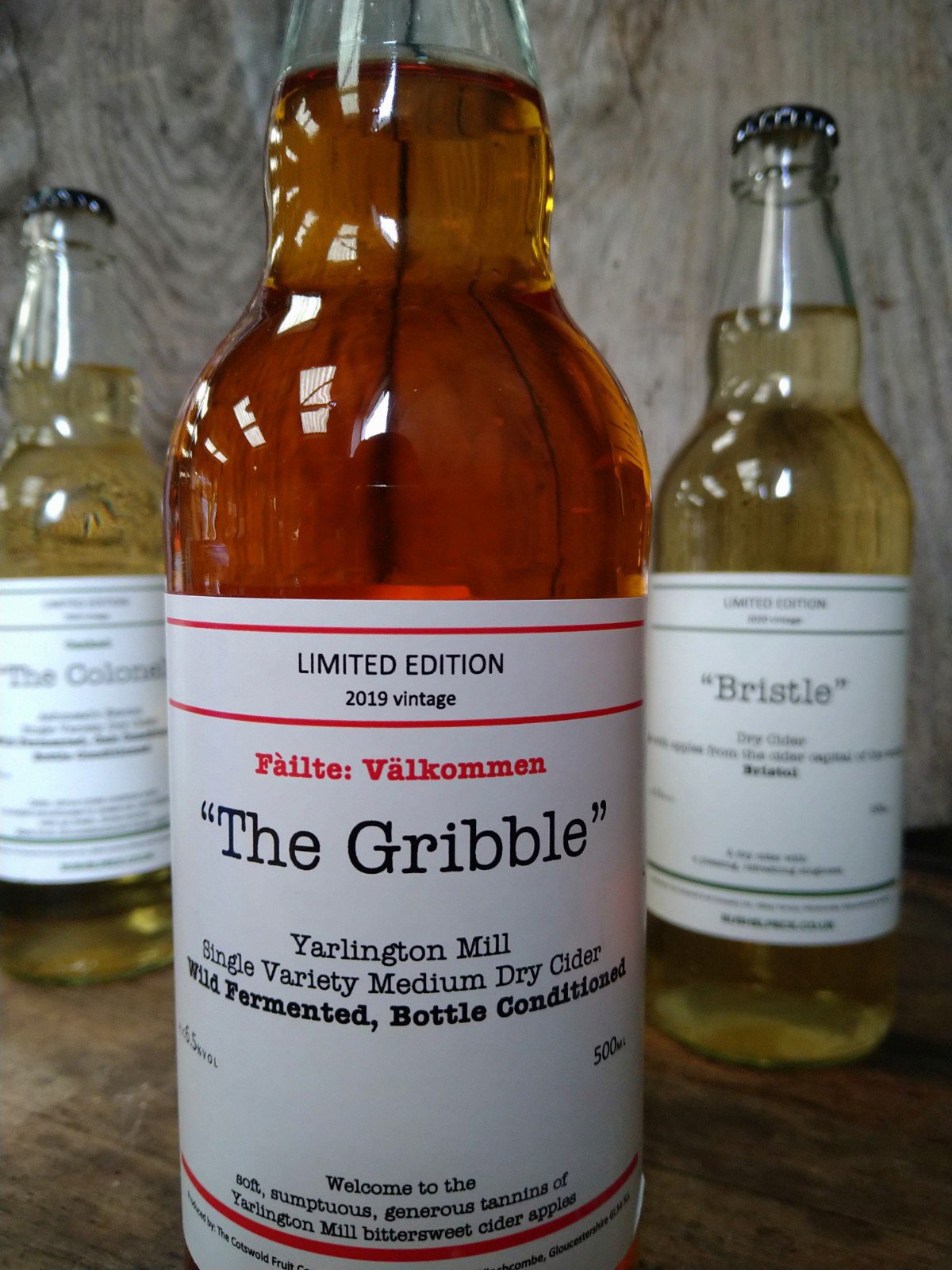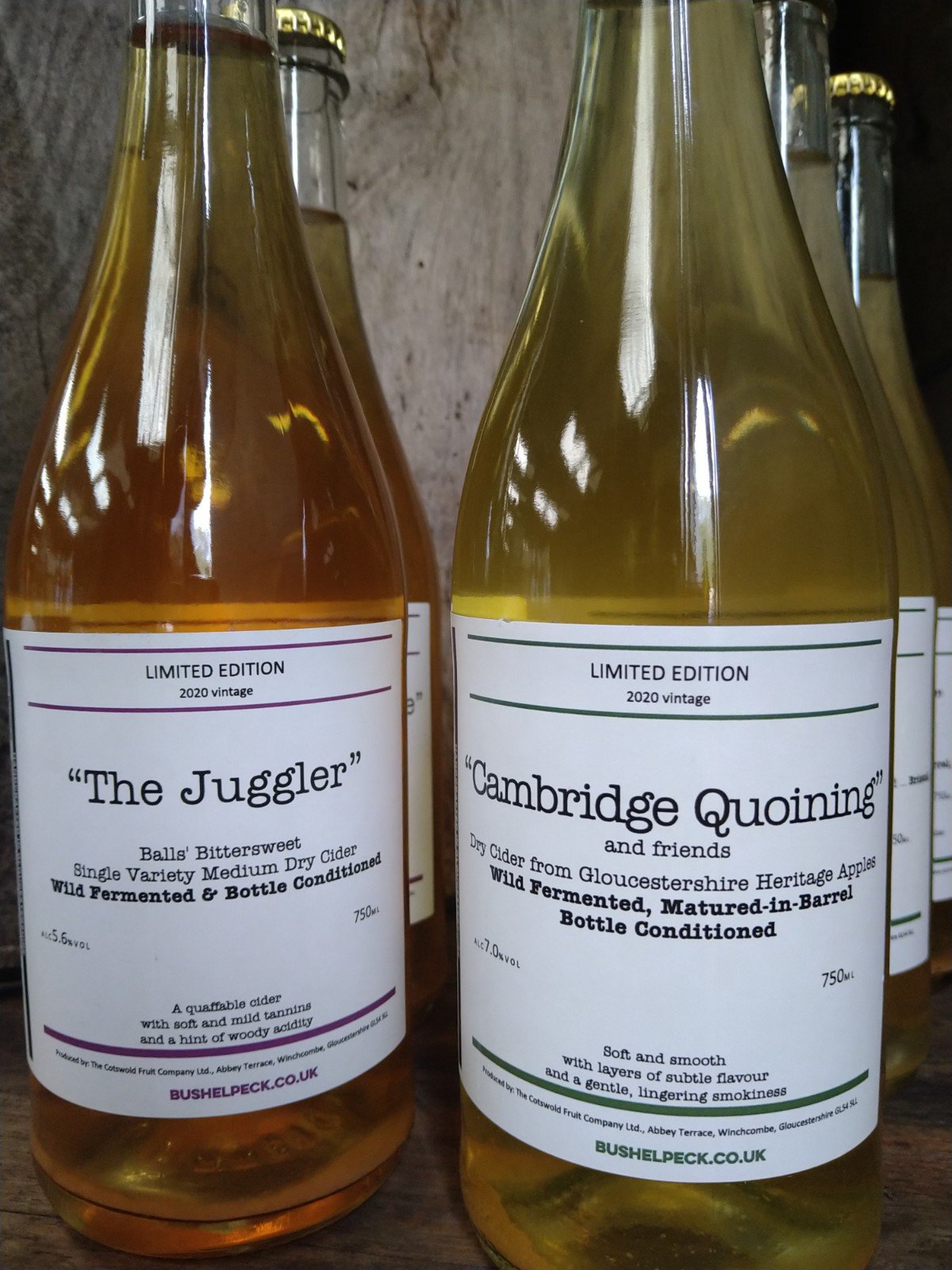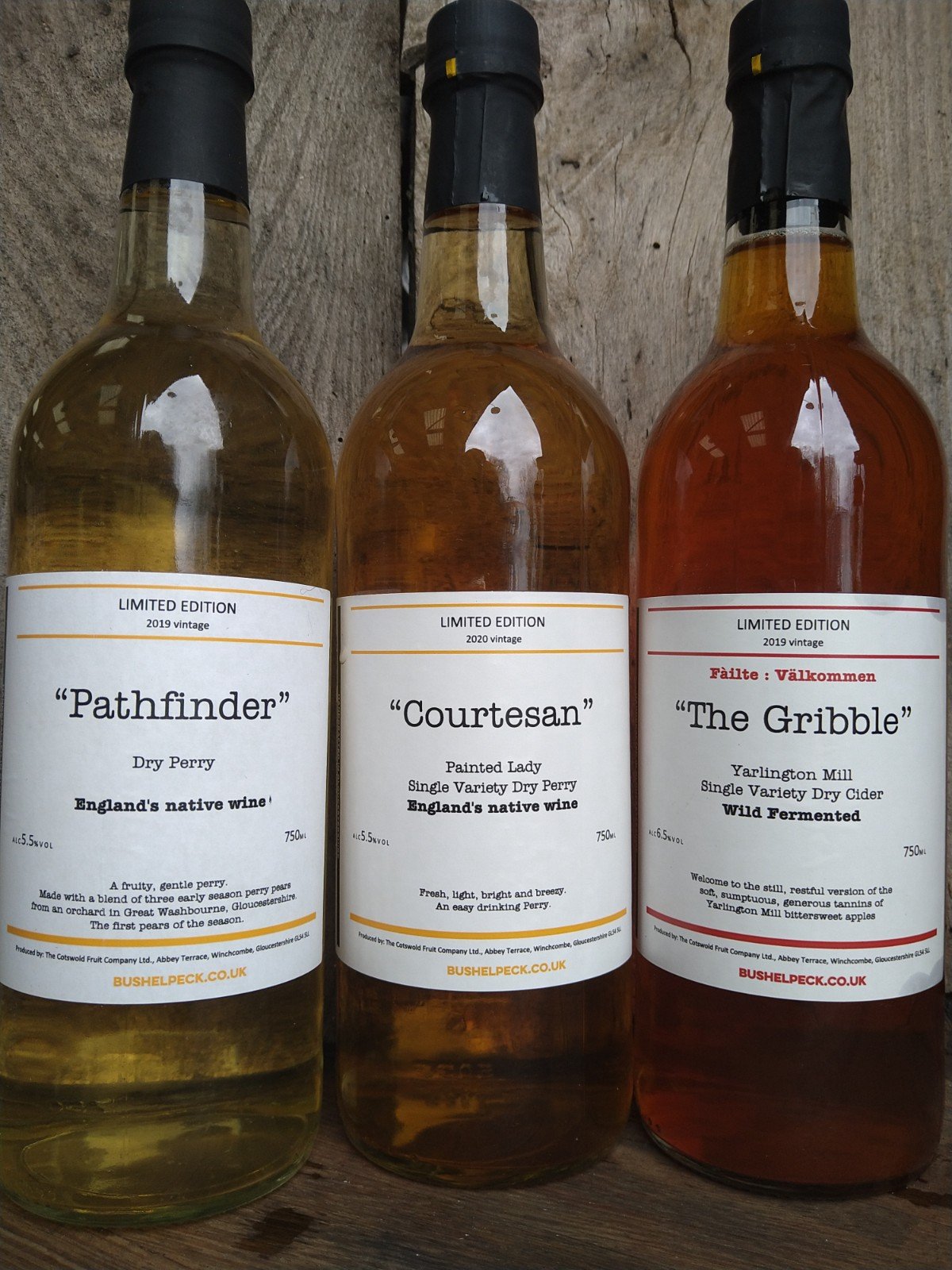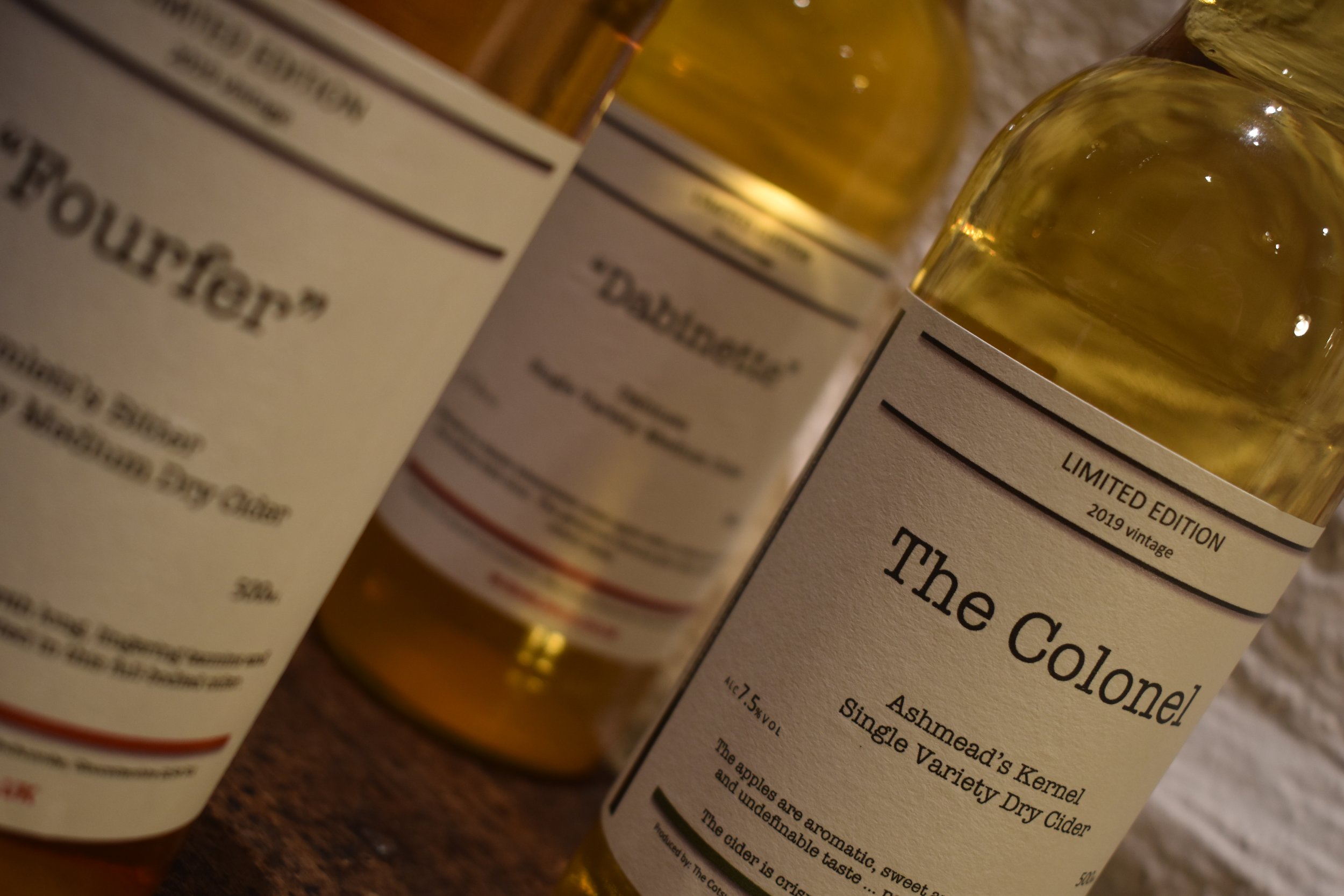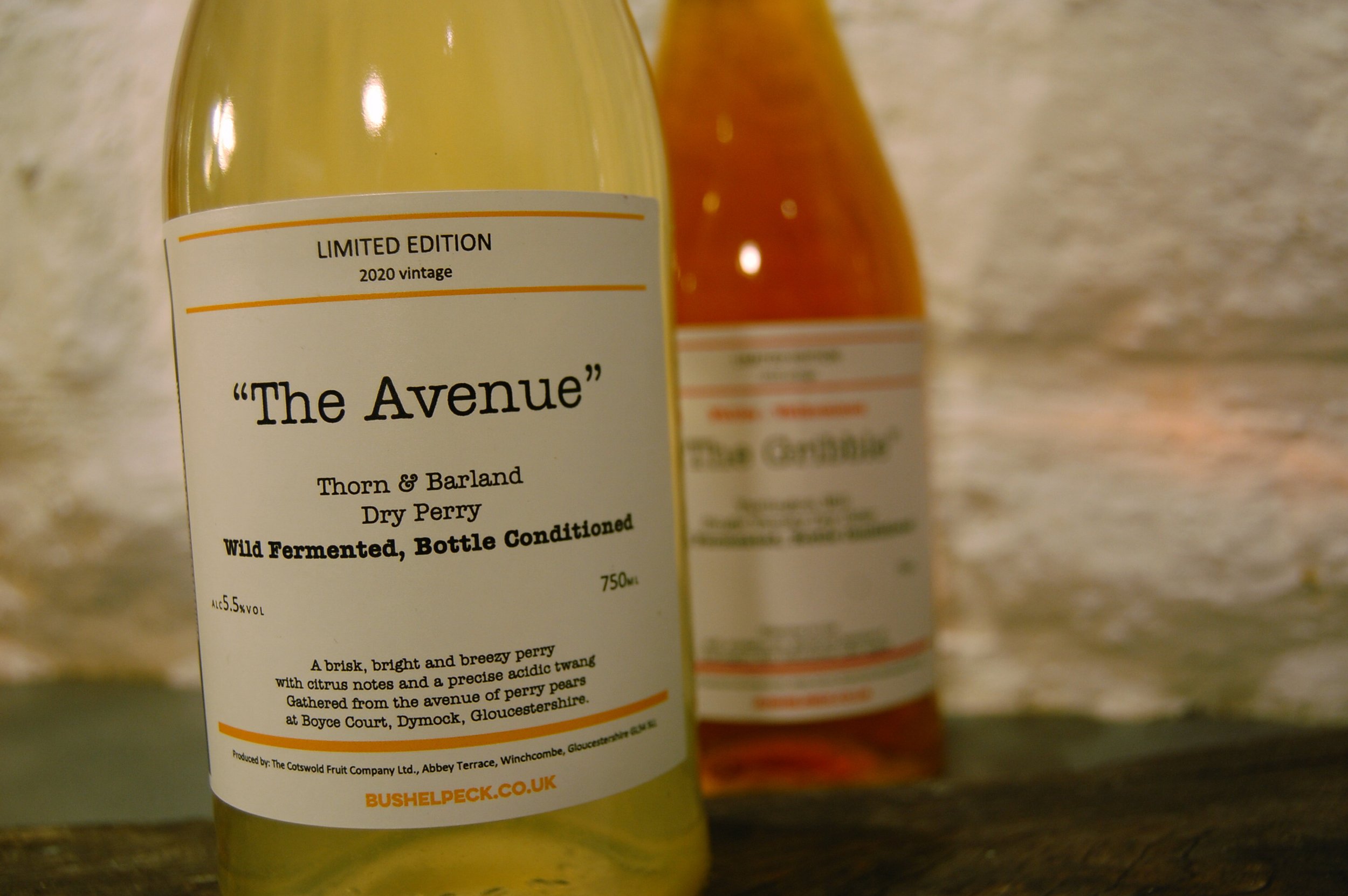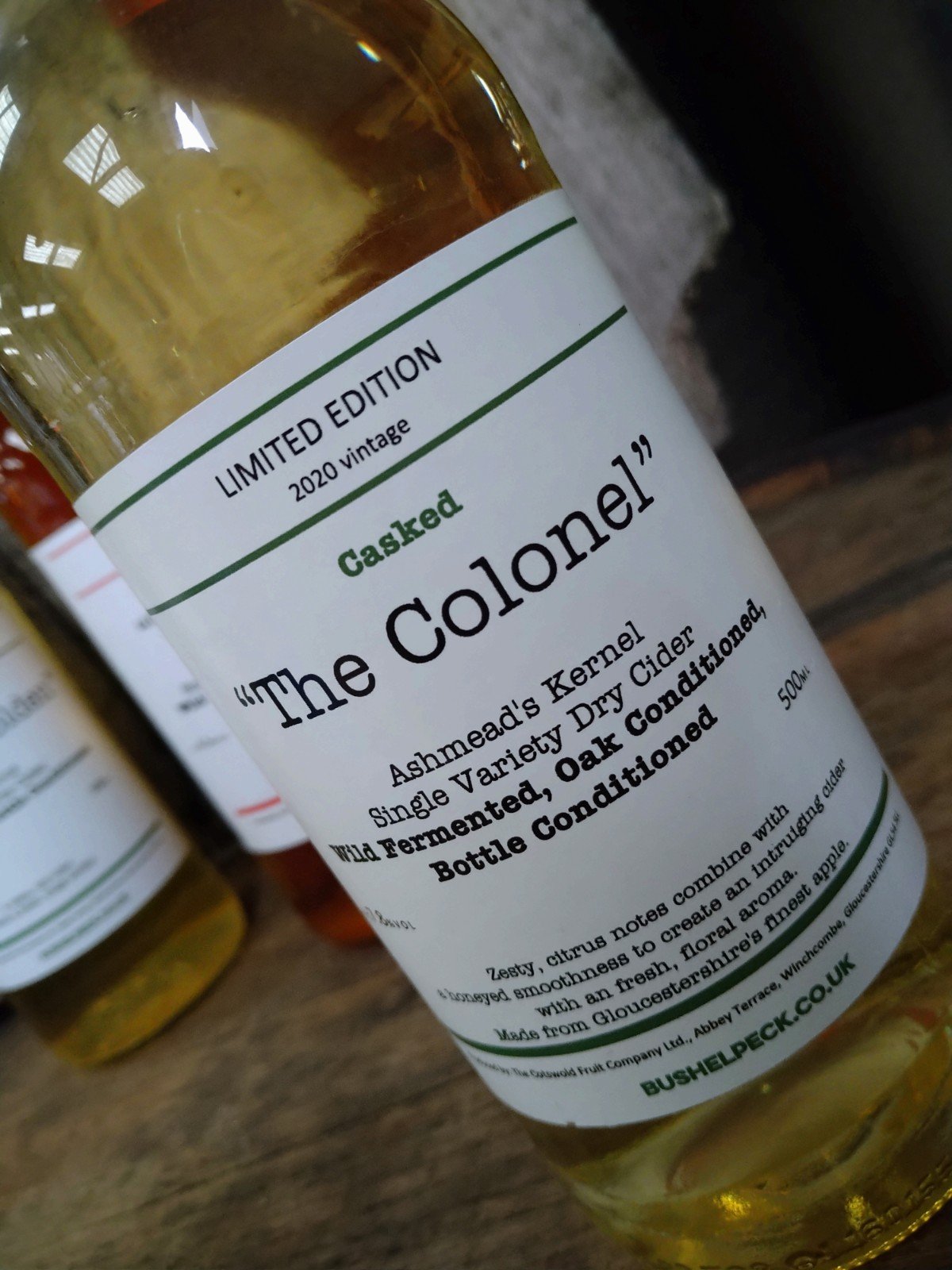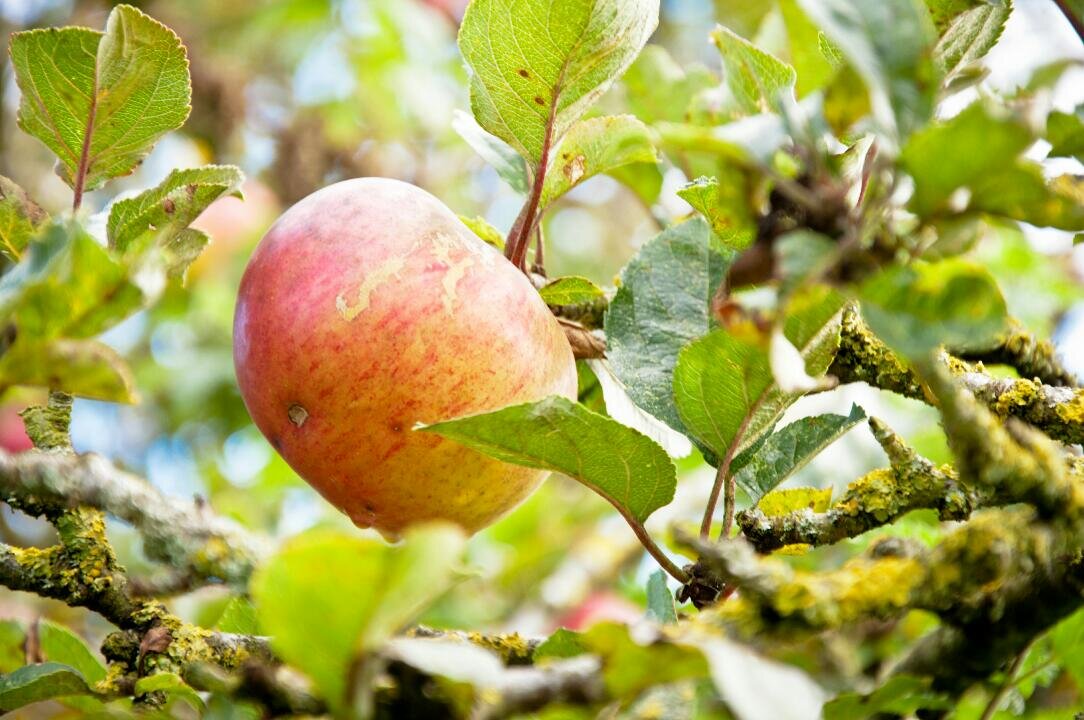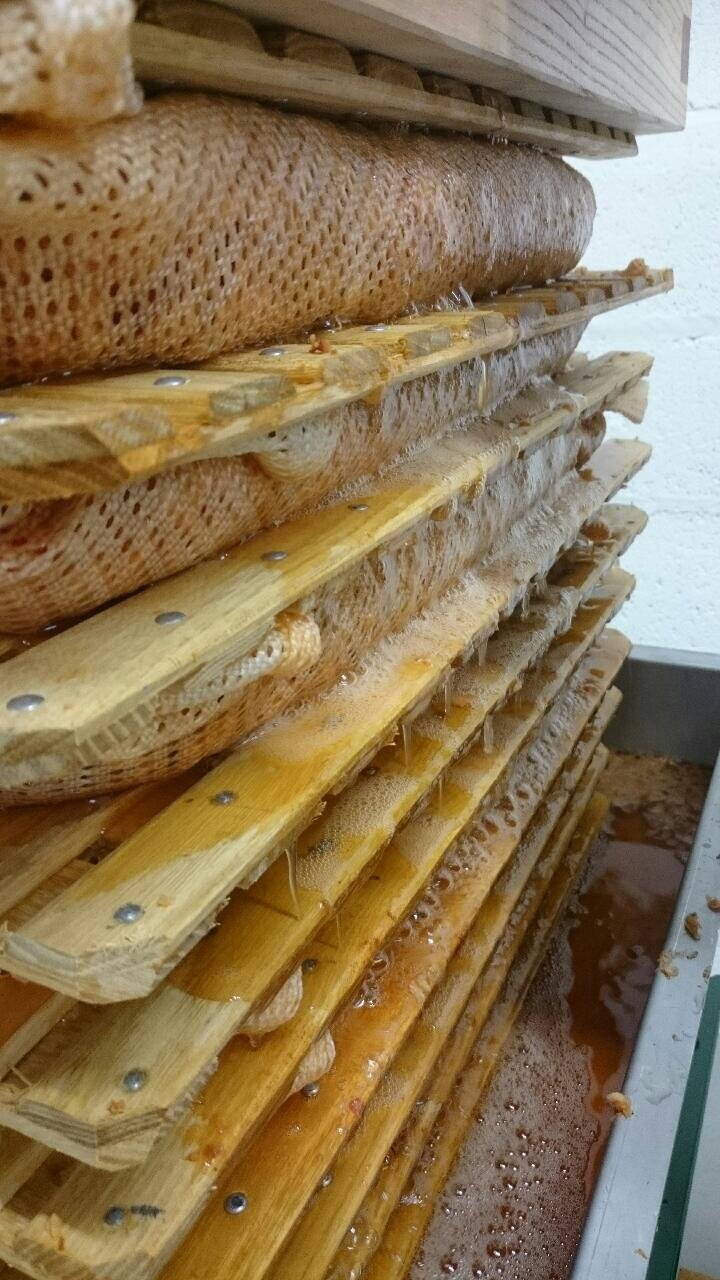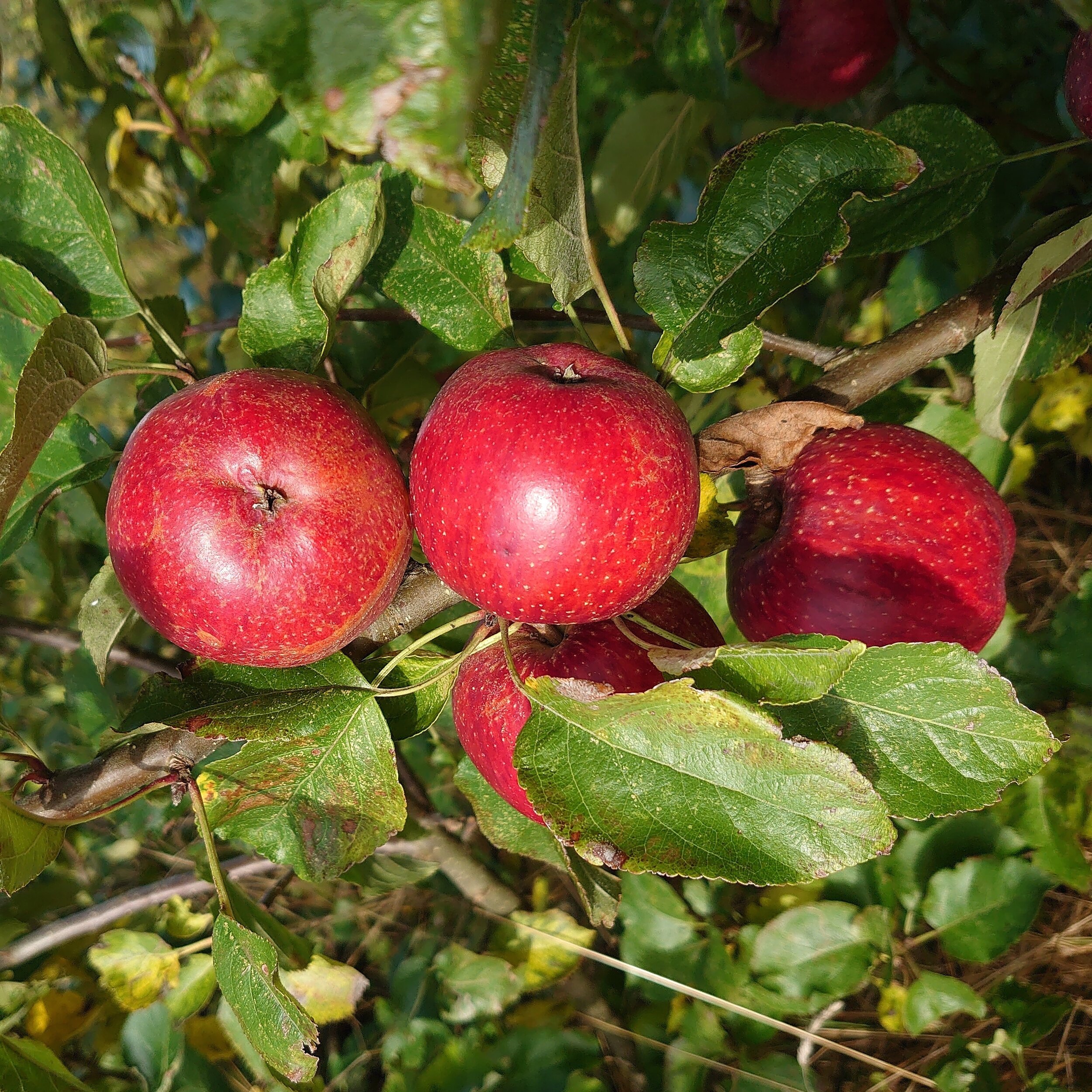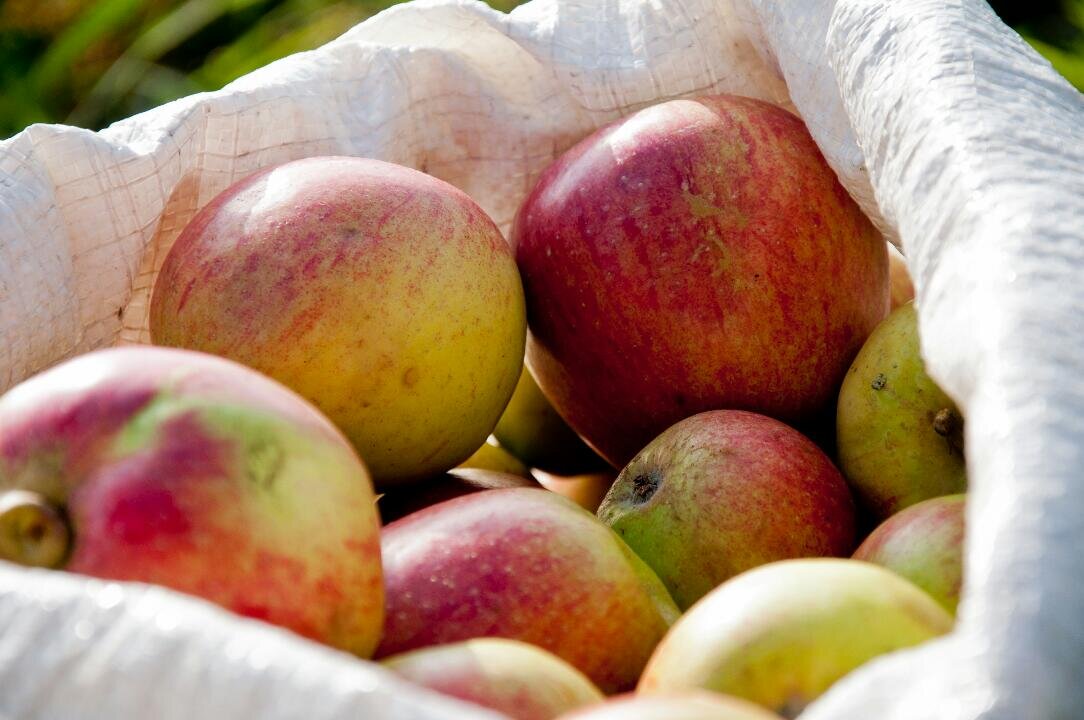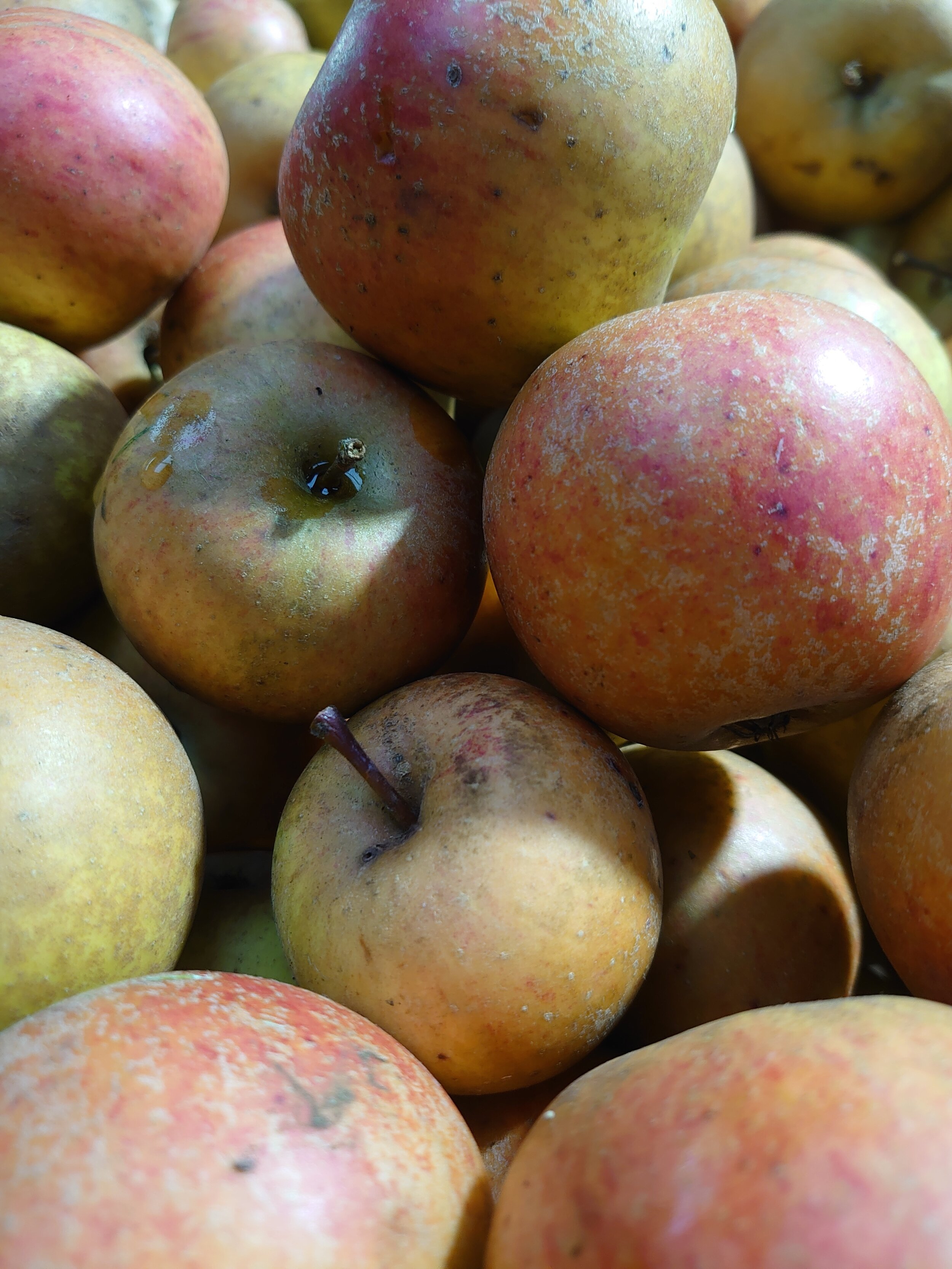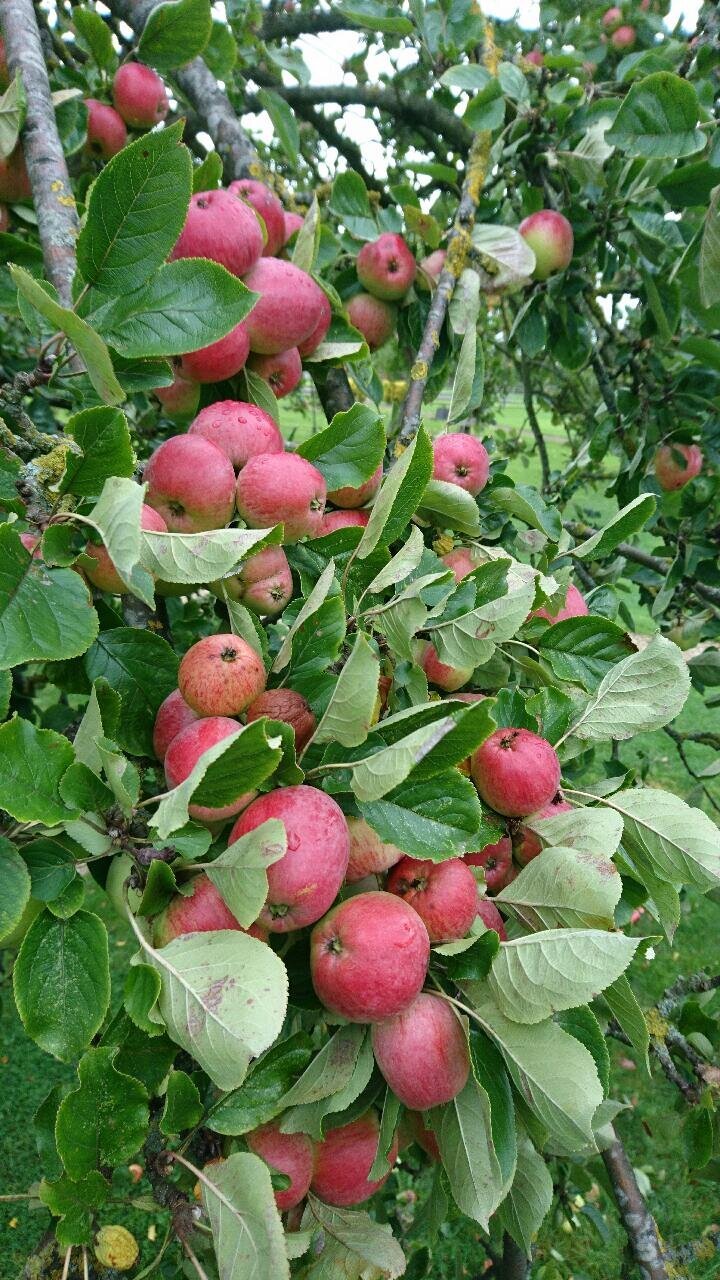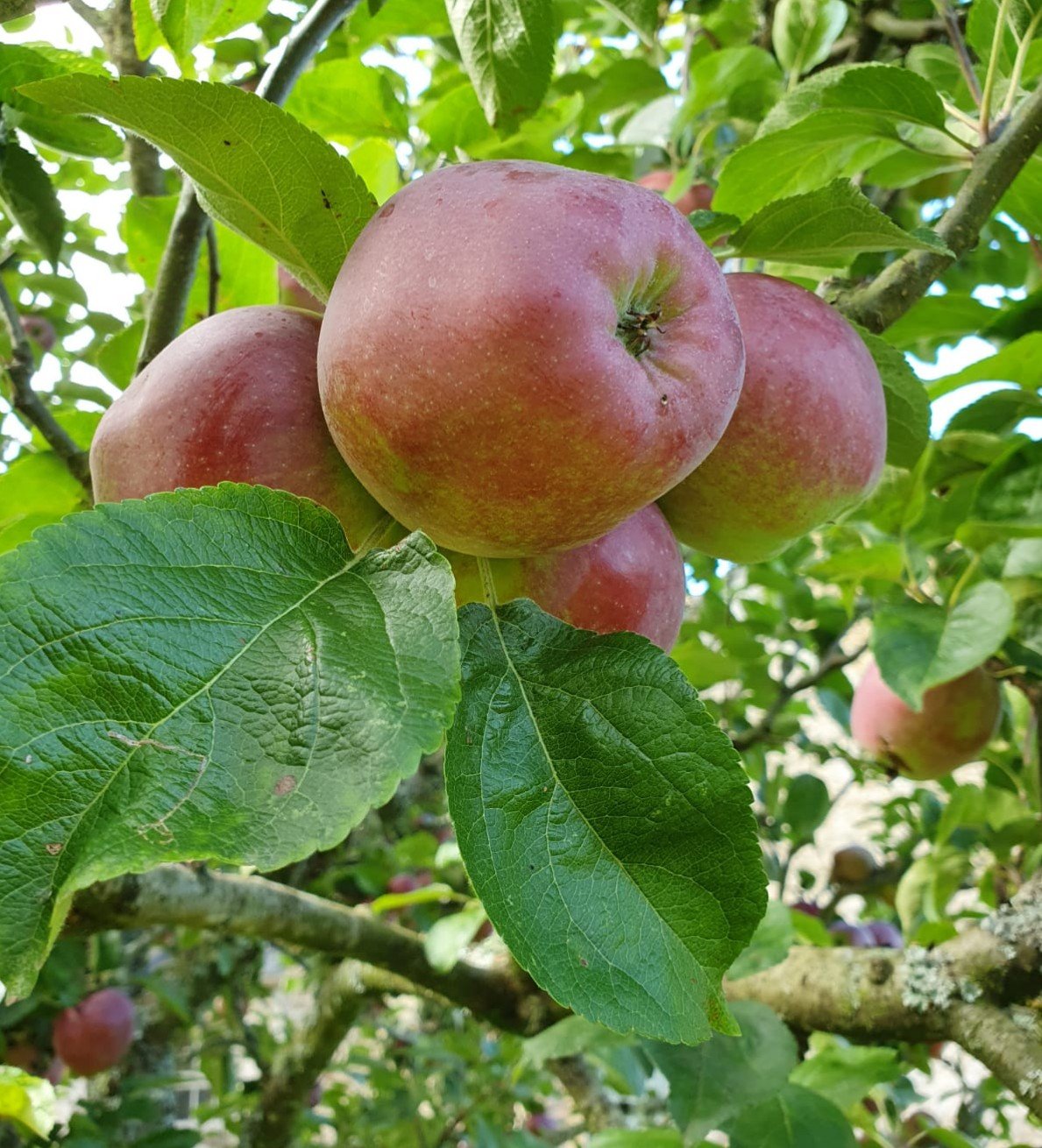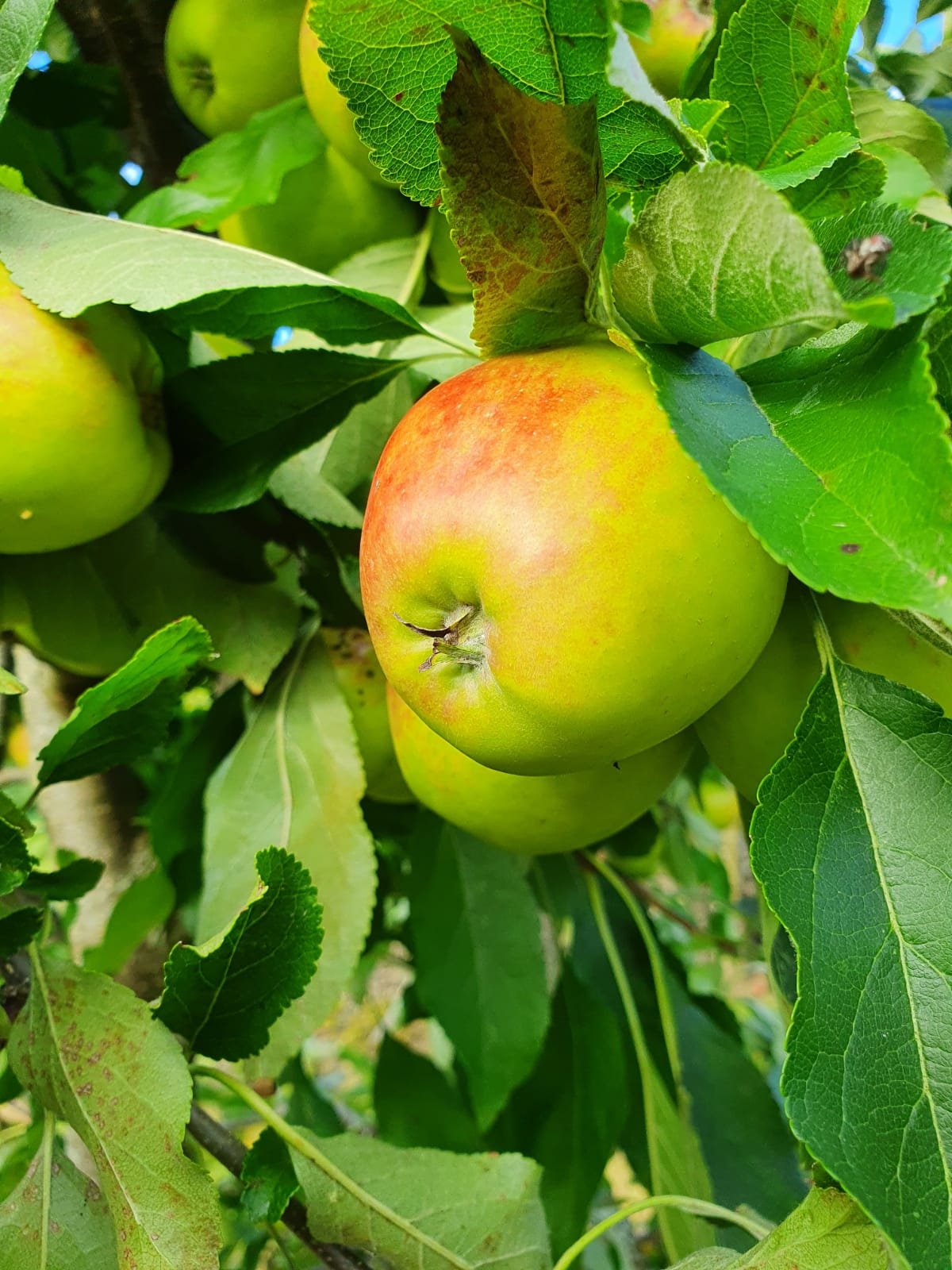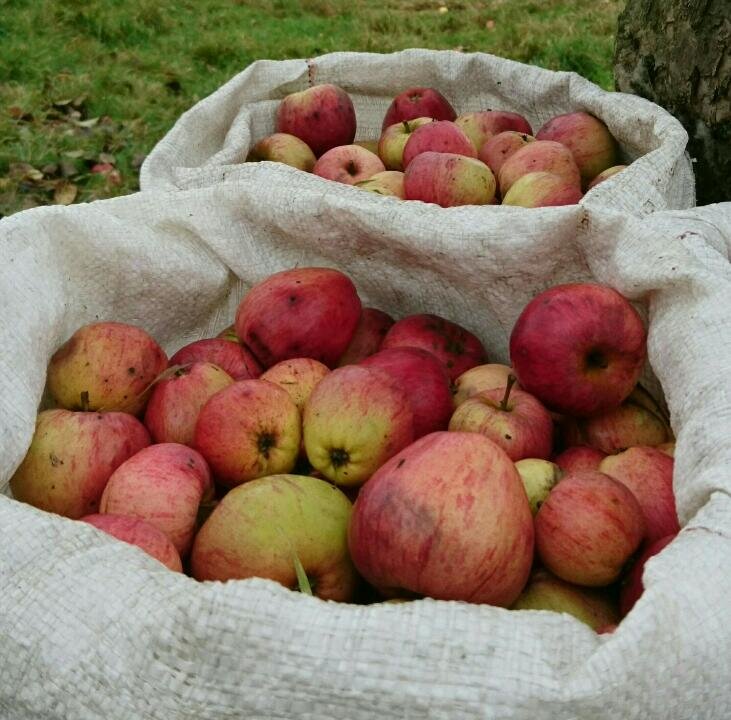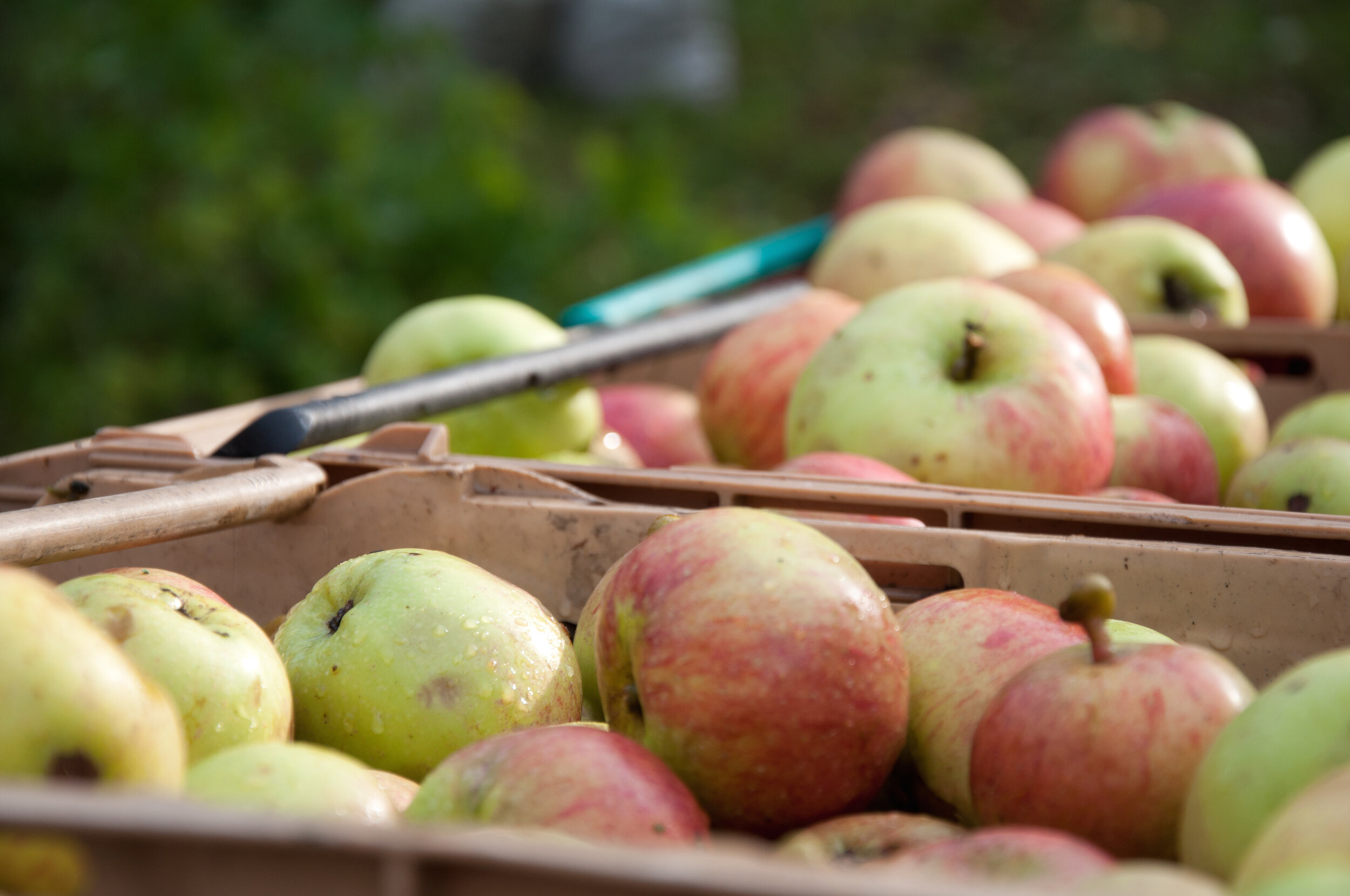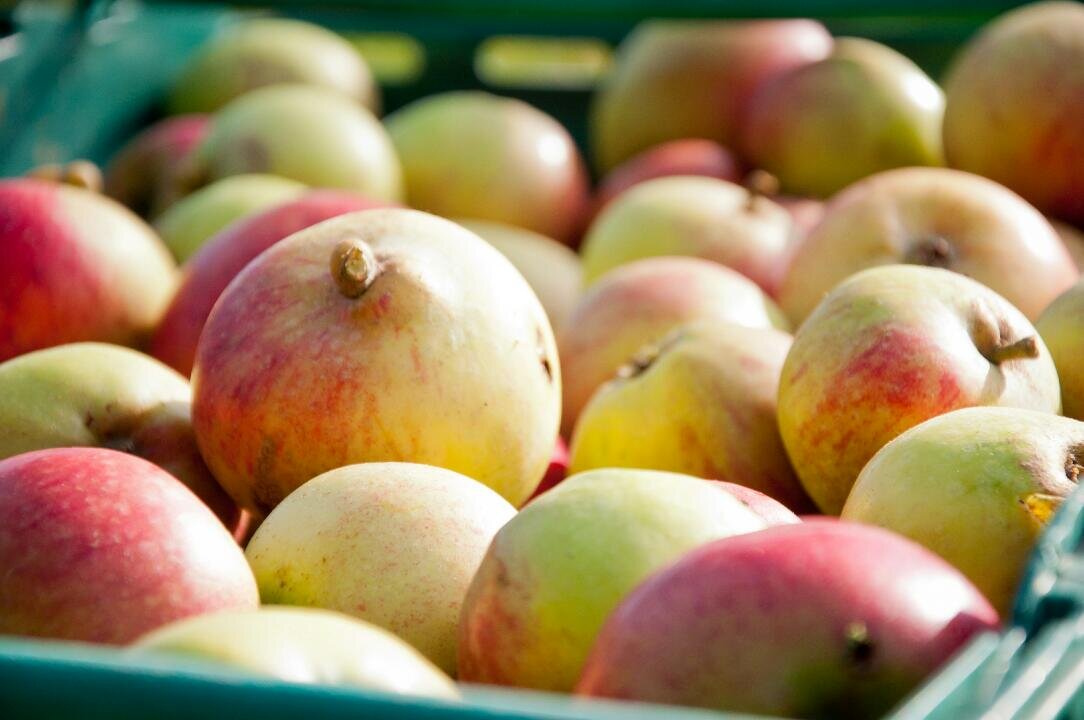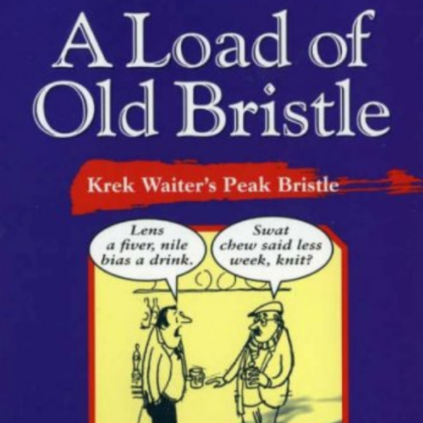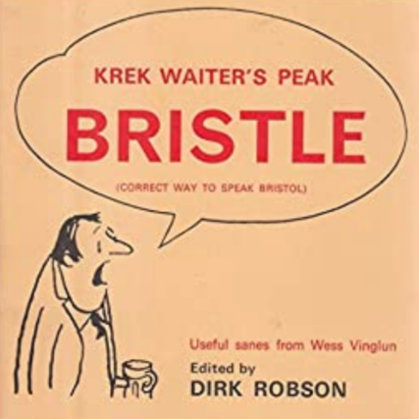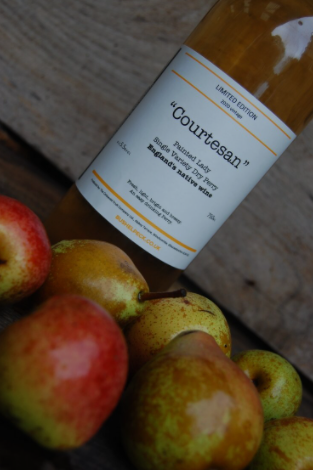we make our ciderS simply, locally, sustainably, responsibly and supportively …
… but we hope you’ll try some so you can tell us if we make them well.
Cider is made from apples (or supposed to be) so we define our ciders not by how much sugar is added but according to the fruit from which they are made. So, instead of sweet, medium or dry our ciders are FRESH+CRISP if made from eating apples, RICH+MELLOW if made from cider apples, SLOW+EASY if a blend of the two or SMOOTH+SUBTLE if made from perry pears.
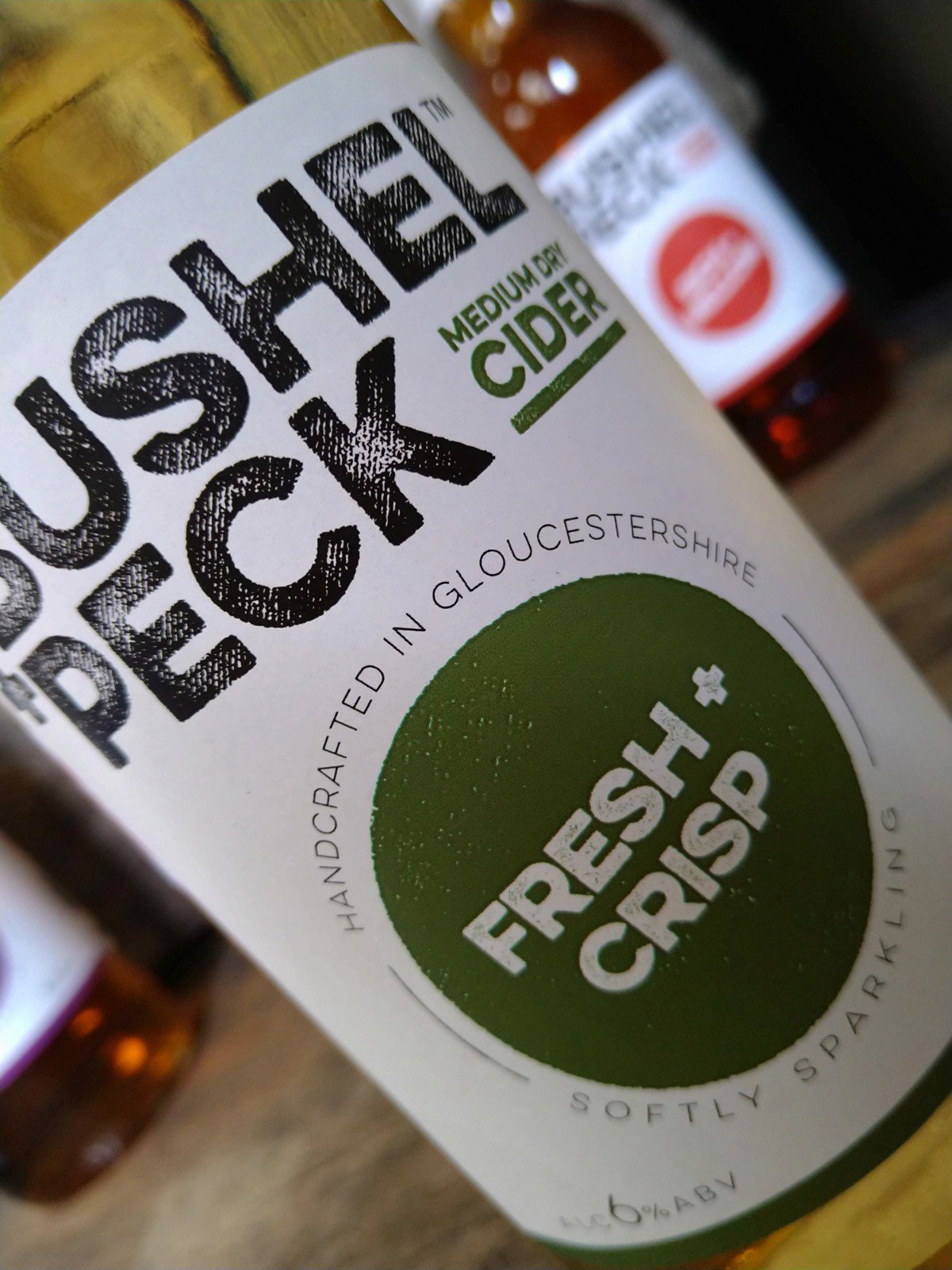
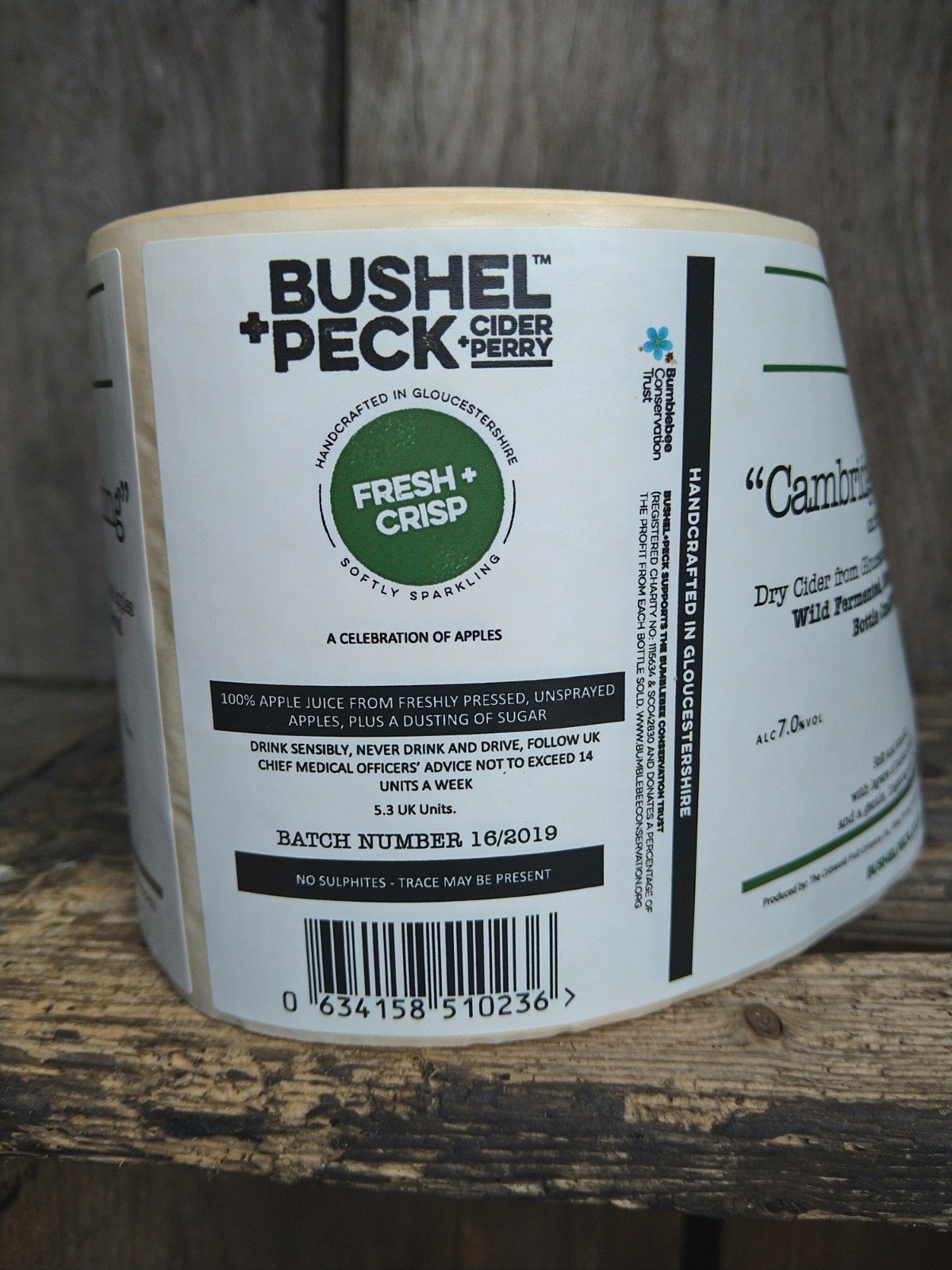
GREEN = FRESH+CRISP cider = eating apples = crisp, refreshing, zingy, acid-driven ciders tasting of ripe green apples, as traditionally made in the eastern counties of England.
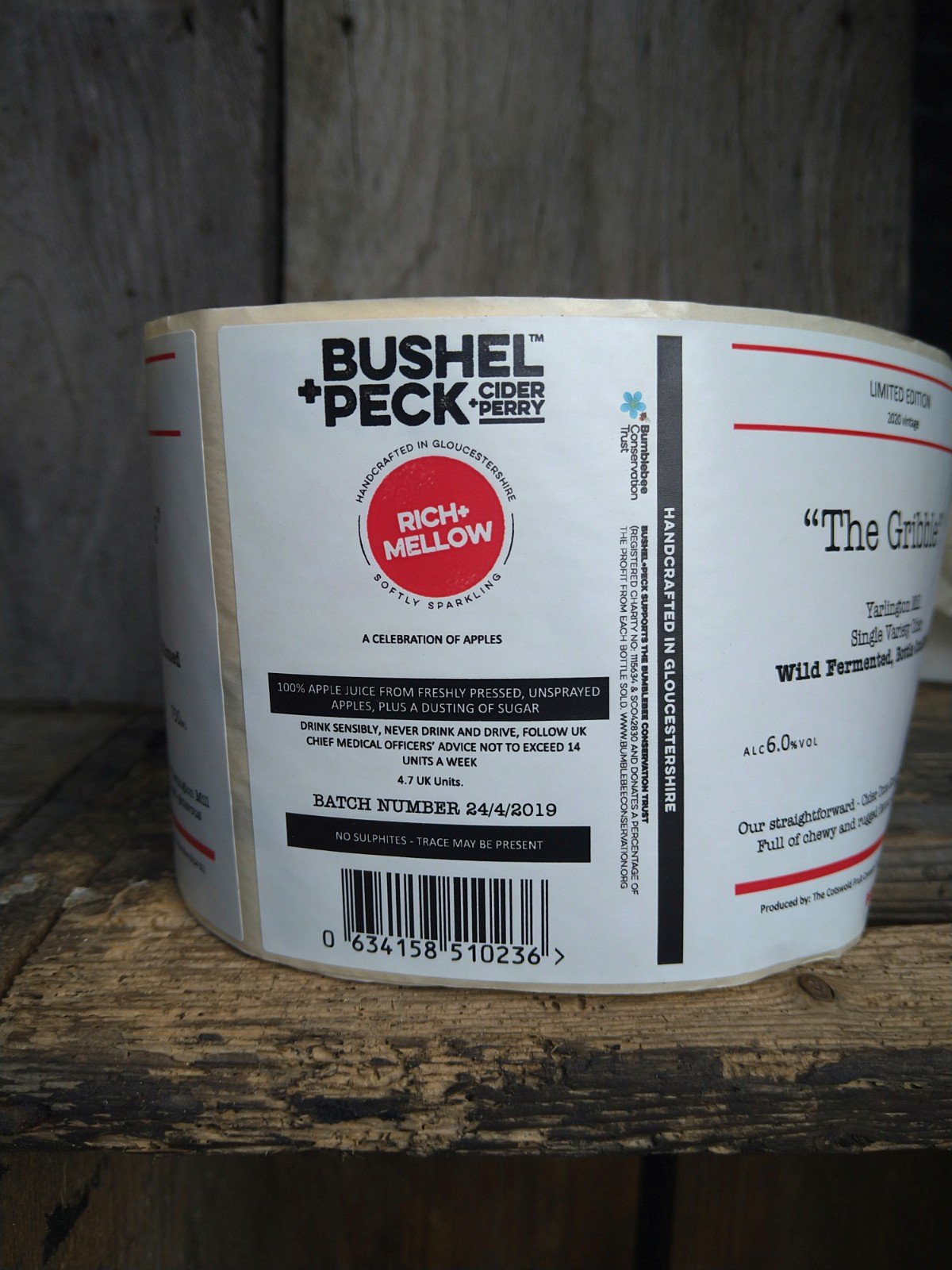
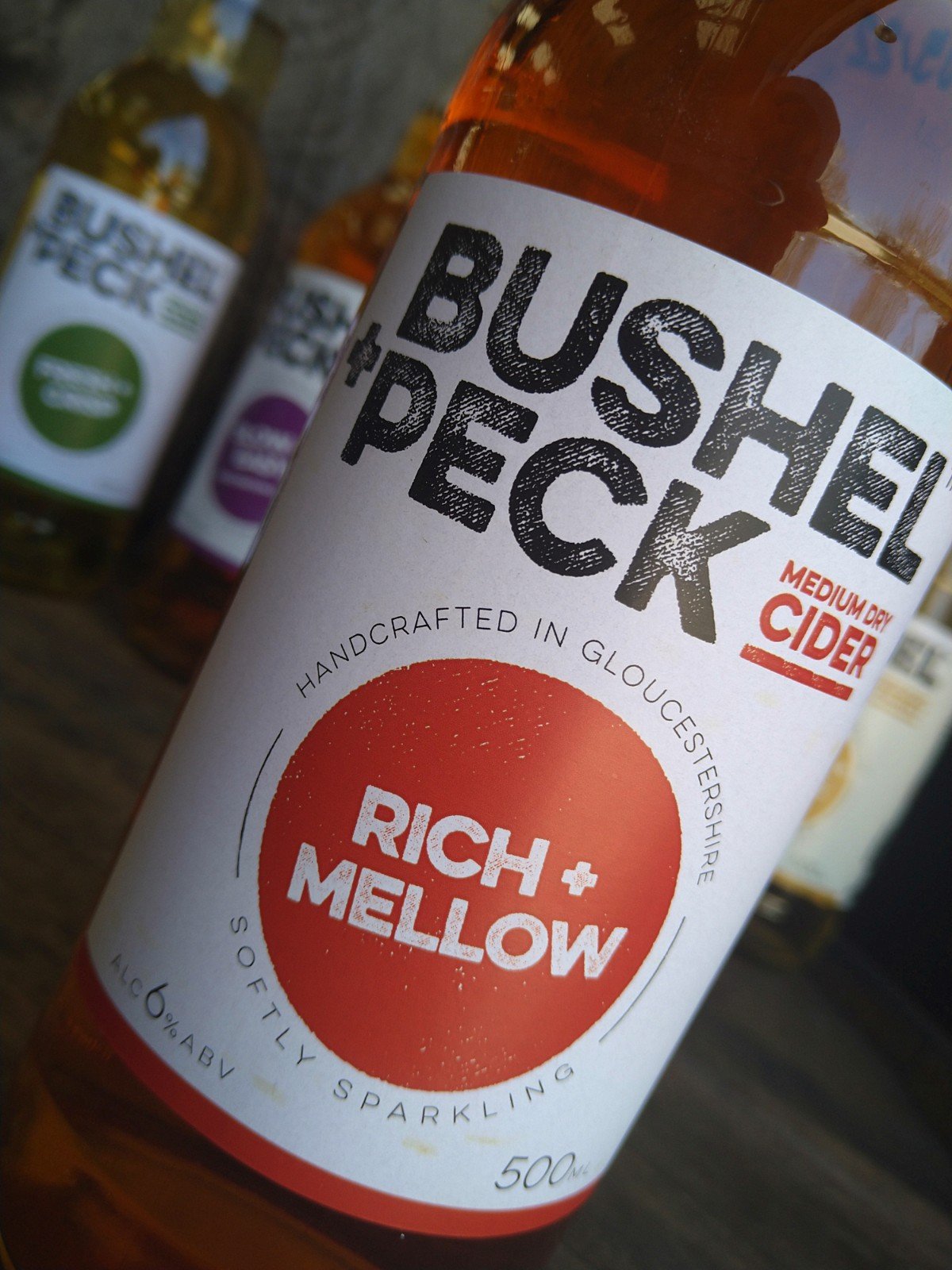
RED = RICH+MELLOW cider = cider apples = typical tannic West Country cider, with more complex, lingering flavours and some gentle astringency,
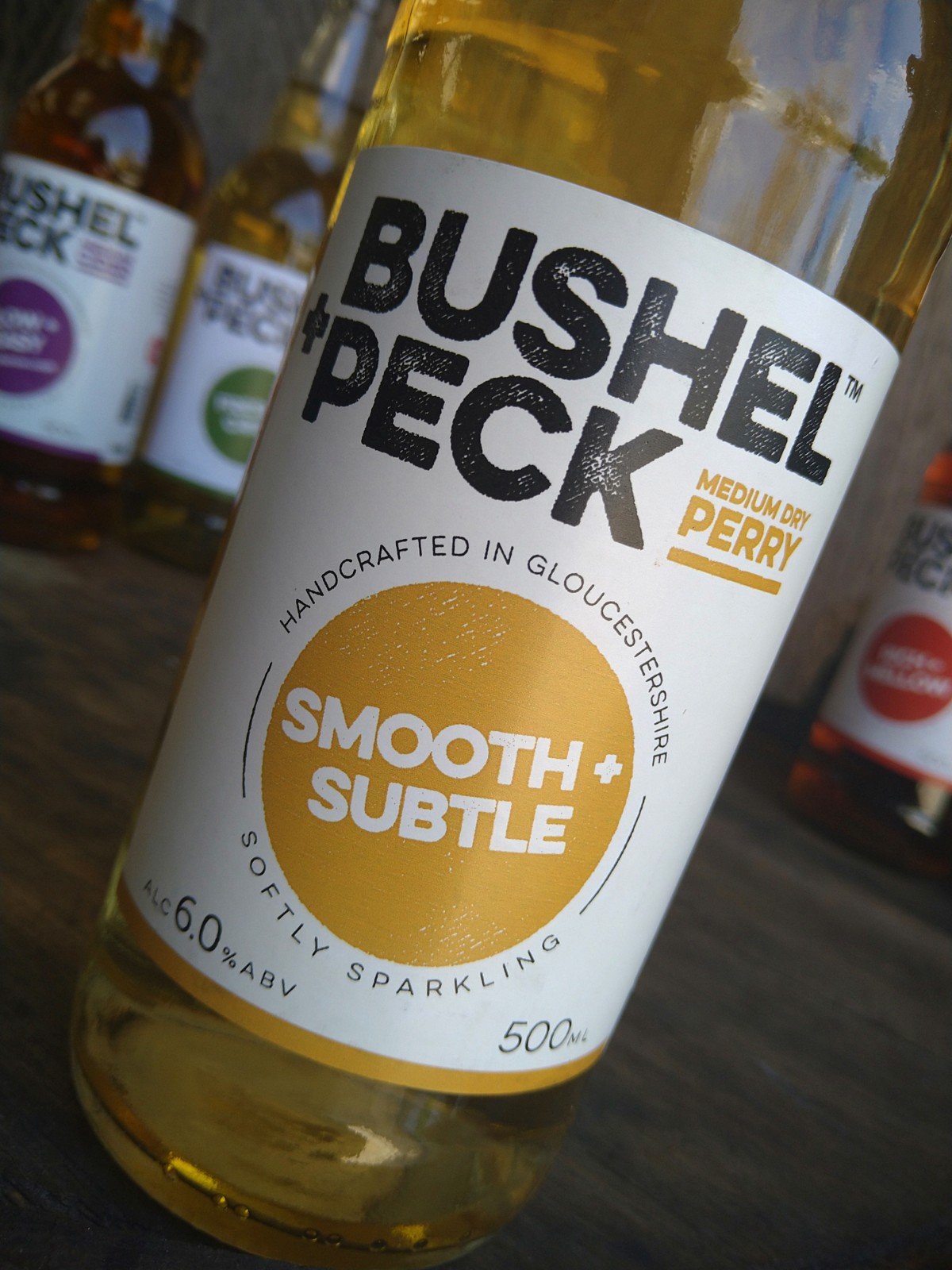
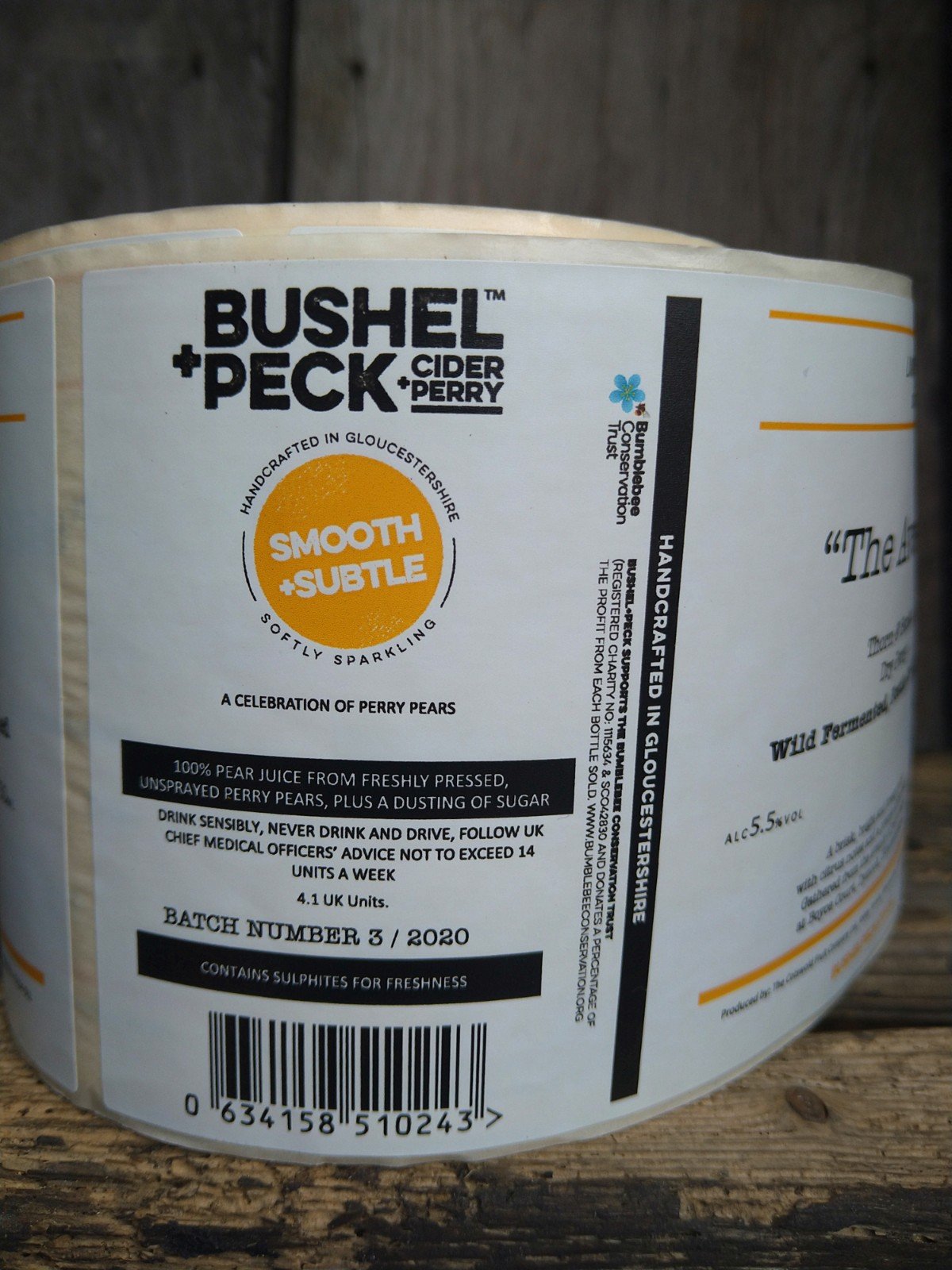
YELLOW = SMOOTH+SUBTLE perry = perry pears = generally more delicate, subtle, fruitful flavours, some precise acidity and hints of tannic astringency. England’s native wine and too often under-appreciated.
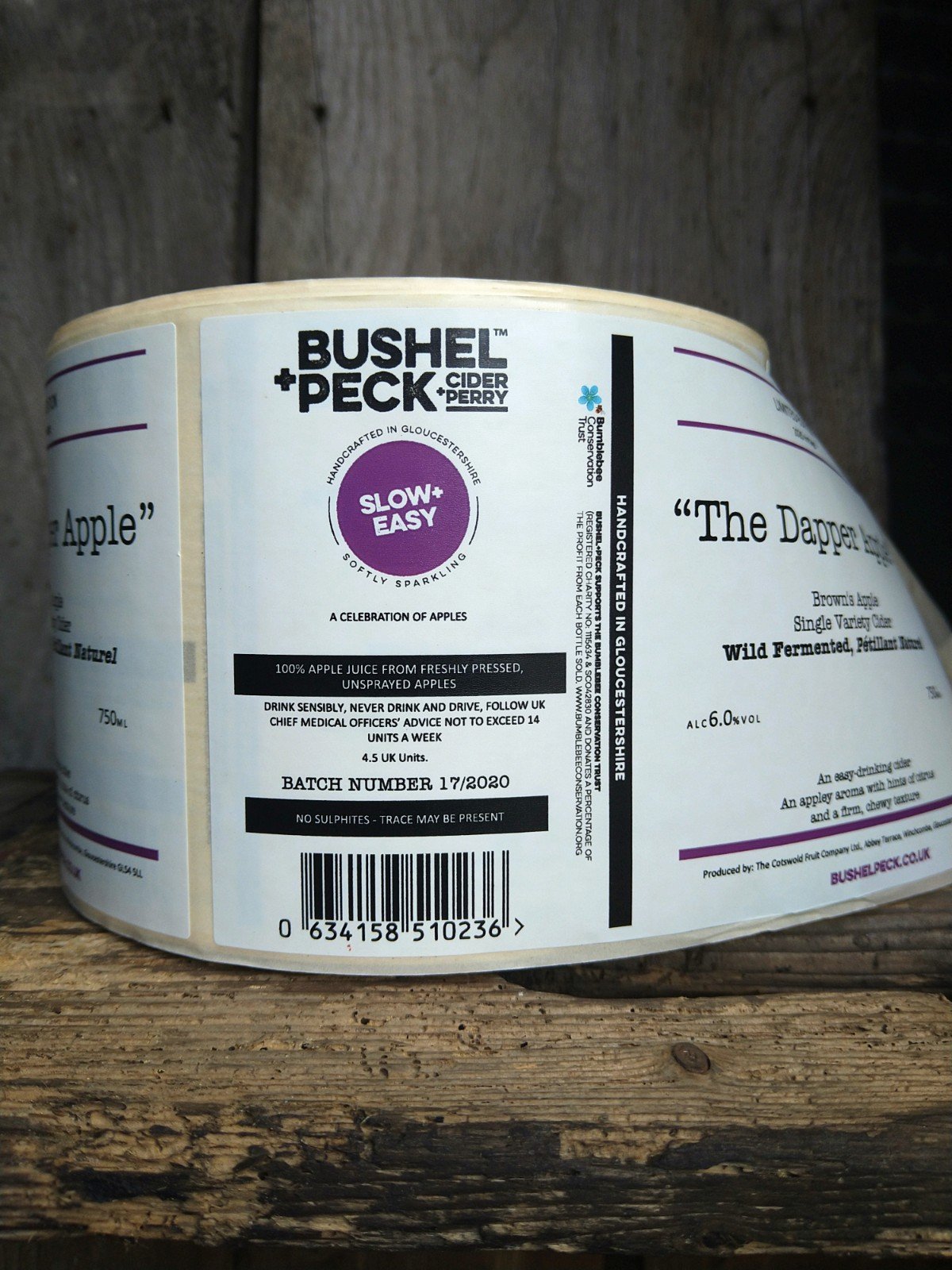
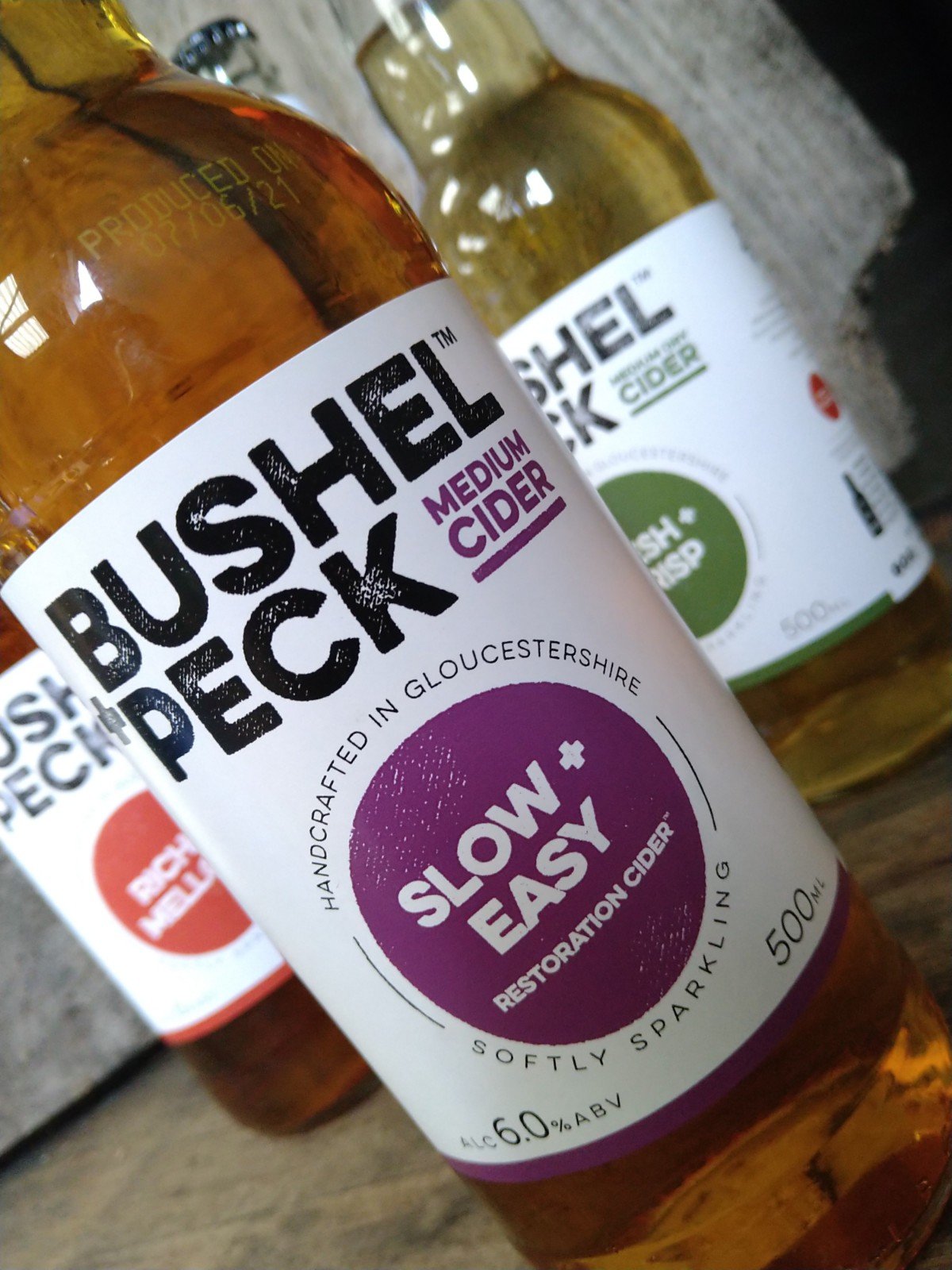
PURPLE = SLOW+EASY cider: an easy drinking combination of eating & cider apples, offering a balance of crisp refreshment, rich flavour and some understated astringency. The best of both worlds.
Other things you should know about our ciders.
They are ONLY made from FRESHLY PRESSED JUICE and never from concentrate. They are proper FULL JUICE ciders. Almost all our cider, including the core range, is WILD FERMENTED. Most of our ciders are PASTEURISED but some of the Limited Edition ciders are not ; some of them are Bottle Conditioned or Petillant Naturel. Our core range is filtered and sweetened with sugar (we never use artificial sweeteners) and are softly carbonated. Most of our ciders are Dry or Medium Dry, except for SLOW+EASY, which is Medium. Sulphites are added to our core range at bottling but our Limited Edition ciders are almost always free from Sulphites (the label will, or course, have this information).
Our ingredients list is never more complicated than “apple juice plus a dusting of sugar”. it’s that simple.
OUR LIMITED EDITION CIDERS
Our LIMITED EDITION ciders explore the qualities of particular varieties of apples or perry pears. For example, The Colonel is made with only Ashmead’s Kernel apples, Gloucestershire’s most famous apple. Other variants celebrate fruit from a particular place; Chedworth Gold is made only with apples from that Cotswold village and Bristle is made only with fruit from Bristol (and environs) - thanks to a scheme we run in collaboration with the Riverside Garden Centre. The Avenue+ is made only with fruit from a famous avenue of perry pears near Dymock (plus a few Blakeney Red perry pears from elsewhere, to make it just a little bit better).
In 2023 we plan to have single variety ciders made from Yarlington Mill, Dabinett, Kingston Black, Balls’ Bittersweet, Tremlett’s Bitter, Brown’s and (of course) Ashmead’s Kernel, plus some location-specific ciders from Chedworth, Cheltenham, Bristol … as well as the famous avenue near Dymock.
Our LIMITED EDITION ciders are … limited in quantity. They come and go. We produce just a few hundred bottles of each variant each year so they are not permanently available. Sorry.
A short, old fashioned essay about THINGS TO THINK ABOUT WHEN BUYING CIDER
Much as we like to think cider is important we recognise that it’s probably not quite as important as food, water, shelter and our ability to socialise for our survival, so we have to admit, reluctantly, that buying cider is a discretionary purchase rather than a necessity. Therefore, first and foremost, cider must taste good, either as a drink on its own or with whatever is on you plate. Fortunately, there are a lot of cider-makers making great tasting cider (and quite a few making stuff which shouldn’t even be allowed to be called cider) so you have a lot of options to choose from.
But before you choose, here are a couple of things to think about. We don’t want to be overly gloomy, but Homo sapiens faces two major ecological challenges, climate change and loss of biodiversity. If you’re concerned about these and want a drink then cider is a good place to start; cider can have strong environmental credentials. Orchards are great for storing carbon, not so much in the trees as in the undisturbed soils (a claim beer can never make). Perhaps more importantly, UNSPRAYED orchards are havens of biodiversity, home to literally hundreds of species of flora, fauna and funga. Sprays kill things - it’s what they’re for - and they reduce or eliminate the biodiversity benefits orchards, so there is a BIG difference between orchards that are sprayed and those that are not. So, as you think about which cider to buy, here are a couple of questions to think about …
Is the cider you’re about to buy made with local fruit, perhaps from your home county, your local region, certainly from the UK? These islands are well suited to the growing of apples - approximately half of the 5,000 apple varieties in the world come from the UK - so you might want to ask yourself whether it is really necessary to burn carbon shipping fruit or fruit juice concentrate or, even worse, bottled cider around the planet.
Is the cider you’re about to buy made from fruit from sprayed or unsprayed orchards, from orchards that have played a part in protecting and enhancing biodiversity … or the reverse?
Once you’ve answered those questions, you could then consider other things, such as whether the cider you’re about to buy contains the pathetically low UK legal minimum juice content of 35% or whether it’s a proper cider with an apple juice content in the range of 90-100%. Or whether … but websites are supposed to be about stylish images and brand projection, so here are some images related to our world of making cider simply, locally, sustainably, responsibly and supportively (and one of Pippi the dog).
